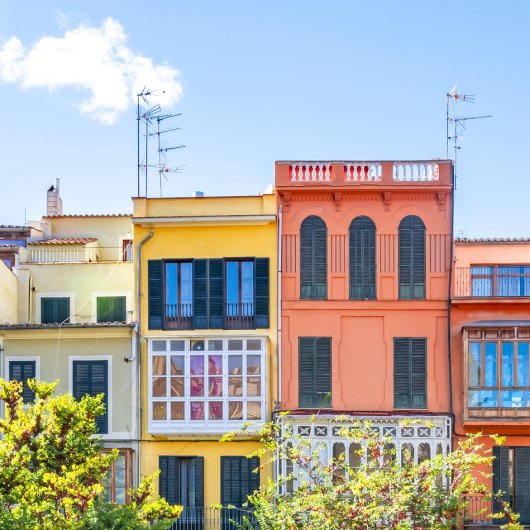
Retiring to Spain
Retiring to Spain
Advantages, daily expenses, taxes and best places
Sun, sea, sand and sangria - Spain looks like an ideal place to retire! But is it as good as it looks? And if, let's say, you're into opera and fine dining rather than sunbathing, should you give the country a look before deciding on a cultural hotspot like Paris or Berlin?
Certainly Spain tops the lists in a number of surveys. For instance, Blacktower Financial Managers gave it top spot as the best place in Europe to retire, rating factors such as weather, cost of living, property prices, safety, and proportion of pensioners in the population. Business Insider puts Spain tenth worldwide - but its US focus gives it a list biased to South and Central America.
Several factors make Spain a great place to spend your retirement.
- Sunshine. The weather is good, particularly in the southern part of the country, where most people decide to retire. (Obviously, northern provinces like Galicia, Navarra and the Asturias have rather chillier winters.)
- Cheap living costs coupled with a relaxed lifestyle. Good local wine, sherry, and excellent tapas are part of Spain's appeal.
- In tourist areas you'll find fantastic leisure facilities - golf courses, beaches, pools, and water sports. But Spain also has some magnificent hiking.
- Spain is a fascinating country full of ancient cathedrals, palaces, Roman ruins, picturesque villages and towns. Madrid's Prado and San Sebastian's Guggenheim hold two of Europe's most famed collections of art.
- You won't be alone. Spain has a big expat community - for instance over 330,000 Brits live there all year, and of course there are many more retirees who spend part of the year in Spain but don't count as residents. In most tourist areas you'll find English is spoken in most shops and restaurants.
Property Guide
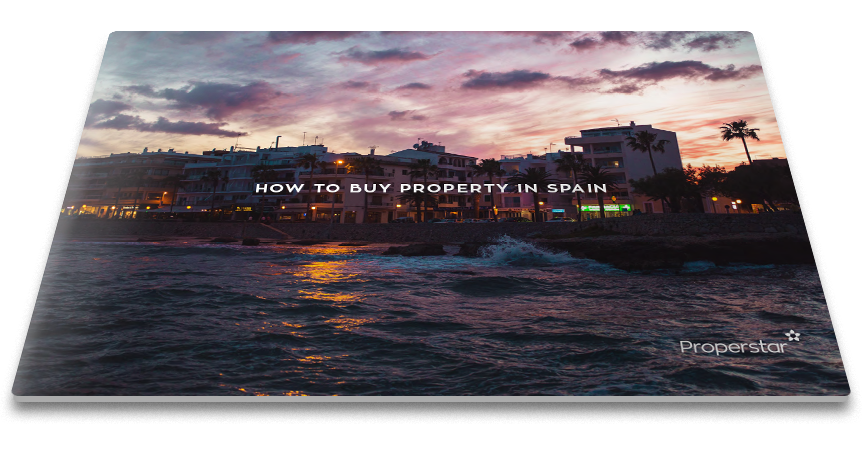
Download the complete guide for free
Ready to turn your dream of owning property in Spain into reality? Our comprehensive guide, "How to Buy Property in Spain," is your essential resource for confidently navigating the Spanish real estate market.
Fill out the form below and download your copy now.
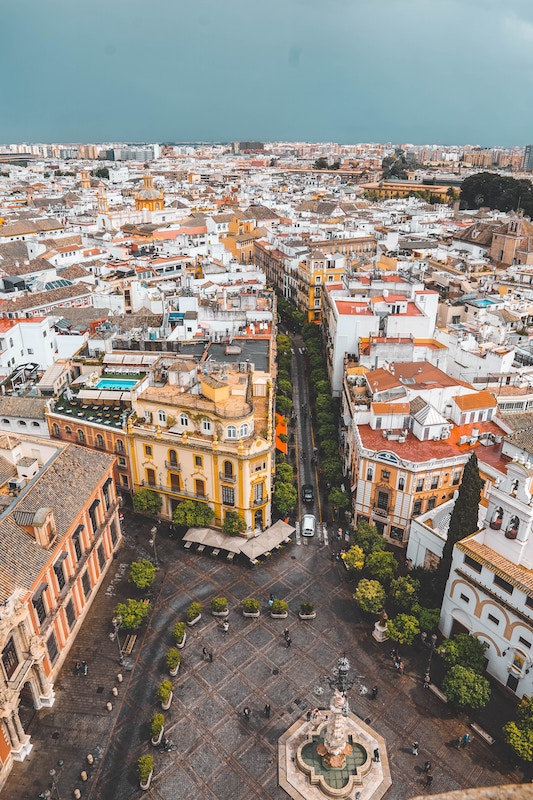 Cost of living in Spain
Cost of living in Spain
Spain is one of the cheaper countries in Europe to live. Numbeo puts it 18th among European nations - 26% cheaper than France and 16% cheaper than the UK, though a little pricier than neighbour Portugal. While it's not as inexpensive as destinations like Bulgaria, Georgia, or Albania, it represents an optimum mix of good public infrastructure, including a great health service, with low cost.
So, how much is required to live well and retire in Spain?
The first good news is that property is still cheap (unless you want to settle in Madrid or Barcelona). You could buy an apartment in a resort from as little as €50,000 or a villa for €100-150,000. If you're willing to put a bit of effort into renovation, country properties requiring some hard work are still to be found for very low prices (though make sure the planning office will let you restore it the way you want before you buy). Even in sought-after Mallorca you can get a two-bedroom apartment for €150,000 or so.
If you're selling up your existing home to buy a property in Spain, you may be able to move up a notch - from one bed apartment in London to three bedroom villa with pool, for instance - or you could bank the difference and use it to fund a more expansive lifestyle.
American retirement organisation AARP estimates that €25,000 a year would deliver a comfortable lifestyle in most areas of Spain. If you're frugal, or simply don't spend a lot on entertainment and dining out, you could live on quite a bit less. (For Barcelona and Madrid, though, you'd need quite a bit more - they're expensive places to live, inviting comparisons with costs in London, Paris, or Berlin rather than most other Spanish cities.)
And if you own your property outright, that would also cut your costs. Numbeo, which compiles cost of living comparisons for cities across the world, estimates that a single person can live in Spain for just €547 a month (before rent).
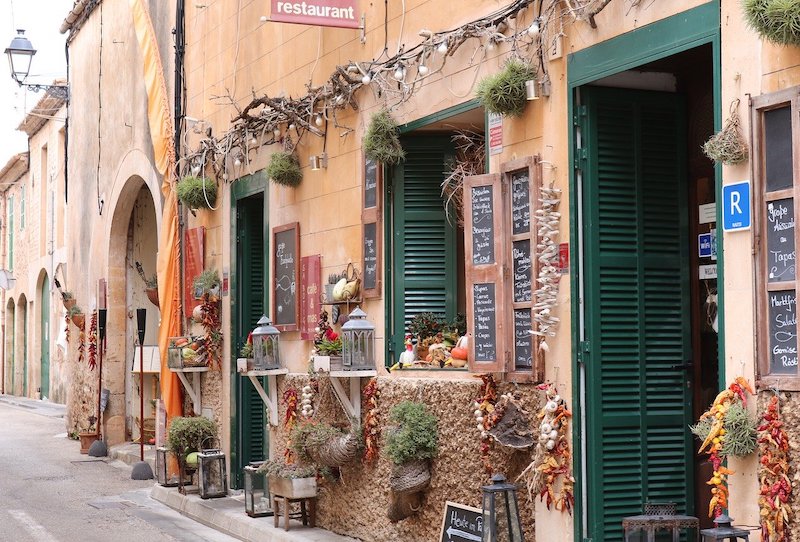 Daily life expenses, healthcare and discounts
Daily life expenses, healthcare and discounts
Local taxes are low. Groceries are cheap - as long as you don't insist on buying exactly what you could get at home (imports can be expensive). Basic utilities could cost €98 a month - add €40 for an internet and TV package, which is about par for the course for Europe.
A meal out might cost from €10 to €30 in a cheap or mid-range restaurant, and a beer will cost a couple of euros - so you could go out for tapas quite often without breaking the bank.
Healthcare in Spain is generally pretty good, and if you're resident, you can join the public healthcare system. Citizens of other EU countries are covered under reciprocal arrangements; anyone working in Spain is covered through their contributions. But if you're not an EU citizen or working, you can apply for Convenio Especial and join the public health system for €60 / 157 a month (under/over 65s). At less than €2,000 a year it is a significant, but not extortionate, cost.
It's worth noting, too, that the cost of living for retirees in Spain is reduced by the availability of discounts for pensioners. A 'tarjeta de jubilado' will deliver 25-40% off the price of train tickets; many museums offer free entry to over 65s.
Find the best place to retire in Spain
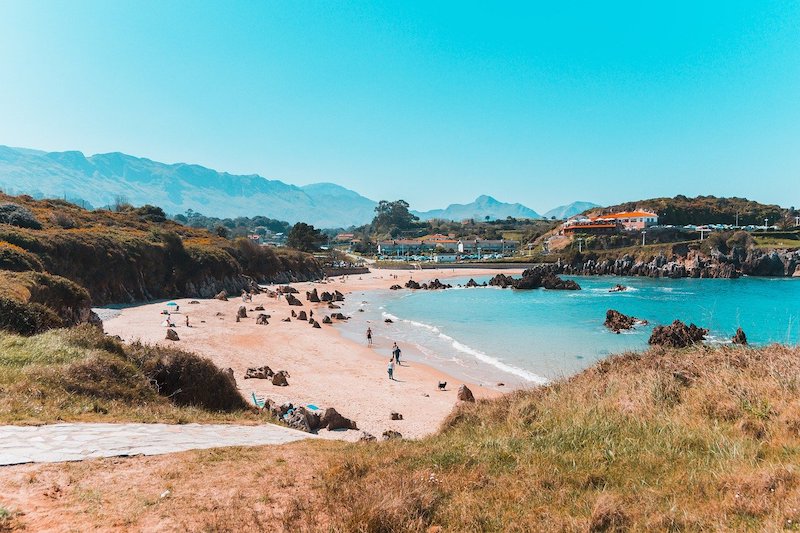 Residence status and taxes
Residence status and taxes
A resort might be a good choice of retirement property if you have a sporting interest. For instance, if you enjoy golf, an apartment at La Manga or PGA Catalunya might be your dream property. Watersports are catered for at many coastal resorts. Don't overlook service charges, though, when you're planning your budget.
Many retirees spend only part of the year in Spain. If you want to live there, though, you'll need to think about the paperwork - even EU citizens need to get a resident's card. If you're not an EU citizen then you need to either get a 'golden visa' through a property purchase of over €500,000, or secure what's called the 'non-lucrative visa' allowing you to live, but not work, in Spain long term. Your first one will be for a year, and after that you'll need to reapply every two years; after 5 years you can apply for permanent residence. It can take a while to get the visa, so it's best to start 6 months in advance of moving. And by the way, although you can live on less, the minimum income requirement for retired applicants for this visa is €25,560 a year (plus €6,390 per additional family member).
Once you become resident in Spain you'll also become liable for paying your taxes there. Spain has double taxation agreements with over 90 countries, so if you have to pay tax on your pension, investment or rental income at home, you'll be able to claim it back in Spain. Spanish tax rates and thresholds are decided by each region; generally, a rate around 20% is paid on the first €12,000 or so of income, and rates increase up to 48% over €175,000 (in Catalunya) or €120,000 (in Andalucia). That might look rather worse than other regimes. However, every individual gets a €5,500 tax exempt allowance, and that goes up by €1,150 on your 65th birthday.
So okay, you might pay less tax if you retired to Dubai (tax rate: zero) or Andorra (ditto). But would you have nearly so much fun? And would you get the same lifestyle for the same budget? The answer to that is: almost certainly not.
So, the long and the short of it; Spain can provide an appealing lifestyle on a fairly thin retirement budget, if you select your property carefully and get ready to the move.
 Cost of living in Spain
Cost of living in Spain Daily life expenses, healthcare and discounts
Daily life expenses, healthcare and discounts Residence status and taxes
Residence status and taxes
